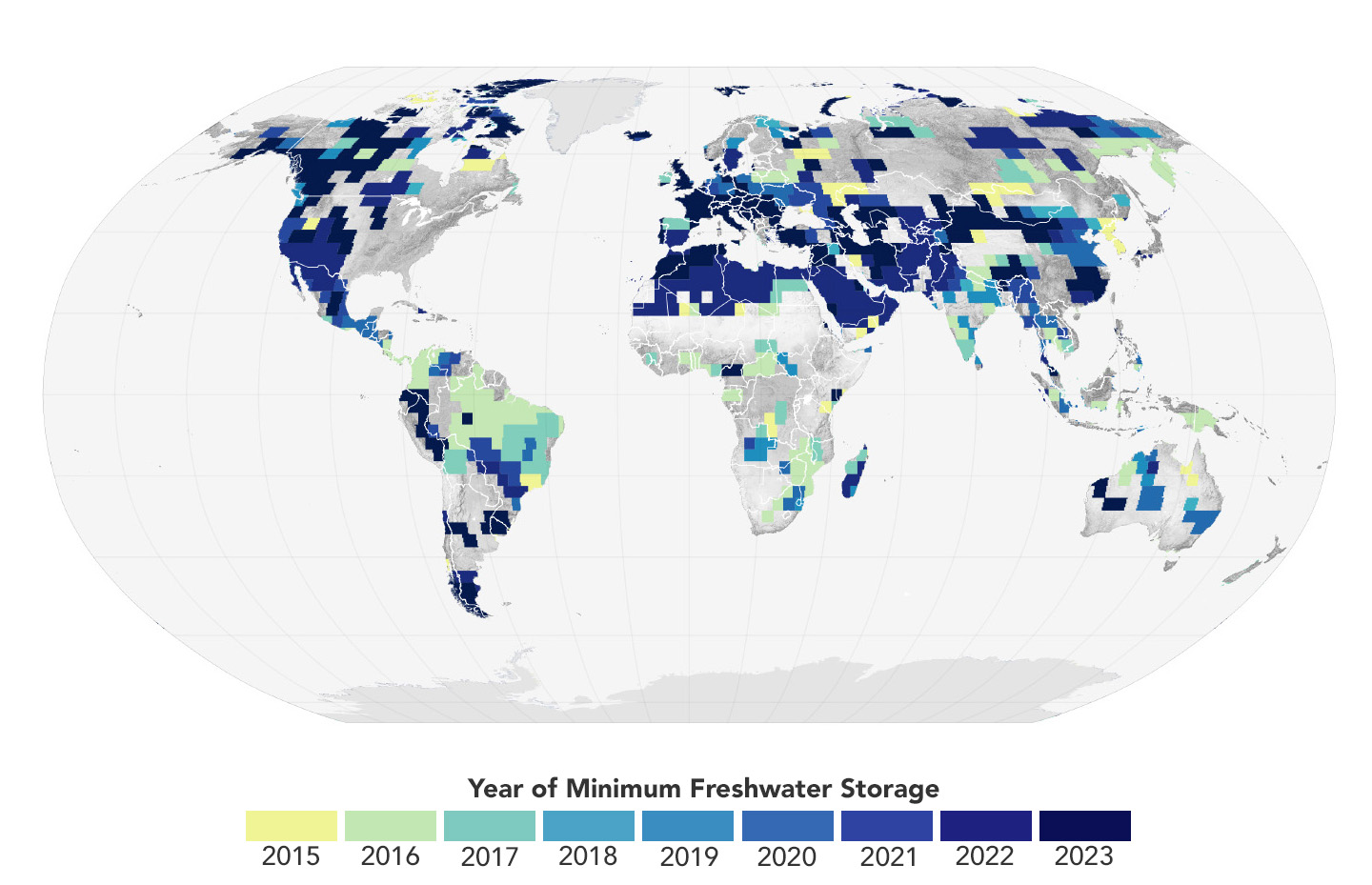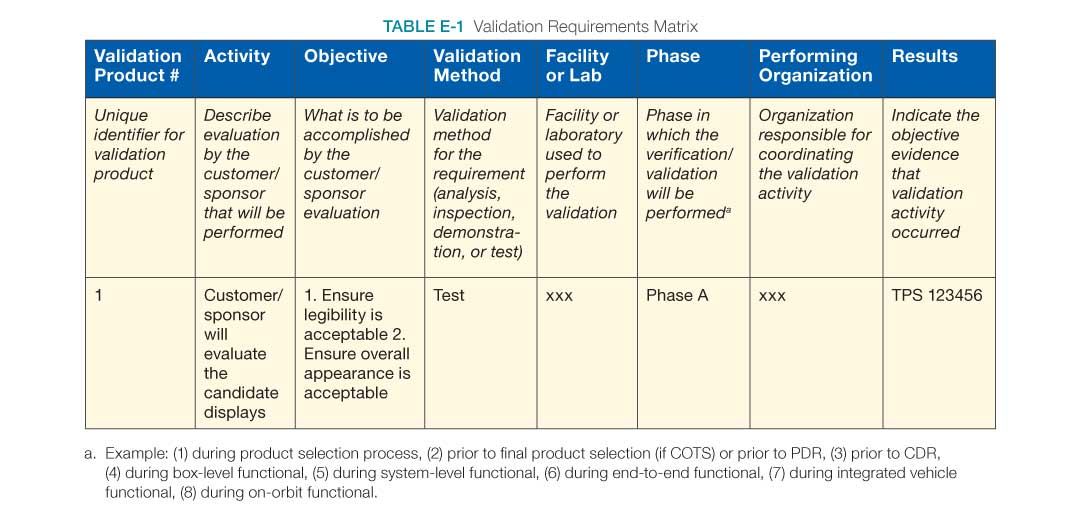Appendix A Acronyms
Appendix B Glossary
Appendix C How to Write a Good Requirement— Checklist
Appendix D Requirements Verification Matrix
Appendix E Creating the Validation Plan with a Validation Requirements Matrix
Appendix F Functional, Timing, and State Analysis
Appendix G Technology Assessment/Insertion
Appendix H Integration Plan Outline
Appendix I Verification and Validation Plan Outline
Appendix J SEMP Content Outline
Appendix K Technical Plans
Appendix L Interface Requirements Document Outline
Appendix M CM Plan Outline
Appendix N Guidance on Technical Peer Reviews/Inspections
Appendix O Reserved
Appendix P SOW Review Checklist
Appendix Q Reserved
Appendix R HSI Plan Content Outline
Appendix S Concept of Operations Annotated Outline
Appendix T Systems Engineering in Phase E
Note: See Appendix I for an outline of the Verification and Validation Plan. The matrix shown here (Table E-1) is Appendix D in that outline.
When developing requirements, it is important to identify a validation approach for how additional validation evaluation, testing, analysis, or other demonstrations will be performed to ensure customer/sponsor satisfaction.
There are a number of sources to draw from for creating the validation plan:
- ConOps
- Stakeholder/customer needs, goals, and objectives documentation
- Rationale statements for requirements and in verification requirements
- Lessons learned database
- System architecture modeling
- Test-as-you-fly design goals and constraints
- SEMP, HSIP, V&V plans
Validation products can take the form of a wide range of deliverables, including:
- Stakeholder evaluation and feedback
- Peer reviews
- Physical models of all fidelities
- Simulations
- Virtual modeling
- Tests
- Fit-checks
- Procedure dry-runs
- Integration activities (to inform on-orbit maintenance procedures)
- Phase-level review solicitation and feedback
Particular attention should be paid to the planning for life cycle phase since early validation can have a profound impact on the design and cost in the later life cycle phases.
Table E-1 shows an example validation matrix.



























